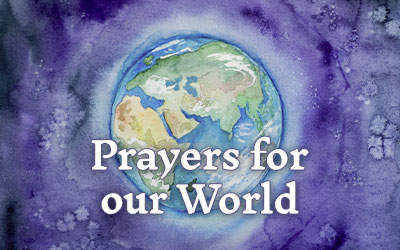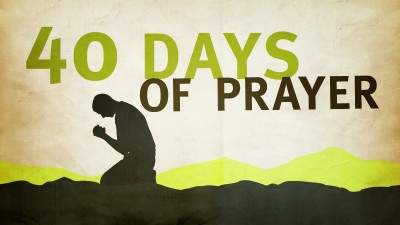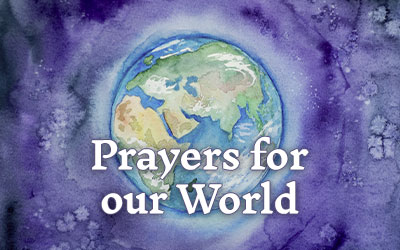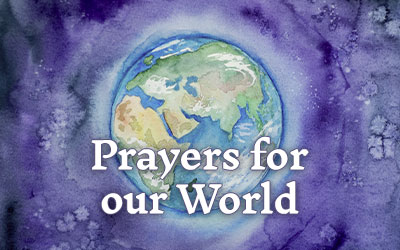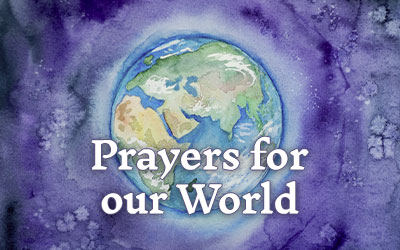United Cry DC16 is a concerted effort to gather pastors, church leaders and intercessors, to help reclaim America's future through a bride that is re-firing in prayer and obedience to our God in the Lord Jesus Christ. None is looking for an event, but for fully embracing His Kingdom come, His will be done, ongoing beyond any one day. We rejoice in the many ways God is moving this year. God bless the Kingdom work you are all doing for His great glory.
See the link below and please forward to help invite those the Lord will assemble:
There is a great hope to stream some from Azusa Street for the CALL with Lou Engle, also on Saturday, 4/9. Then coast to coast, east to west, the church of America is united on our knees.
United Cry DC16 seeks to assemble mostly from east of the Missisippi River, though the whole nation is invited to help bring a tithe of pastors-churches, 10% of the 300,000 churches in America. Spread the word, save the date, pray…for the tithe…
Contending for Christ together,
Lisa Crump
Chief Operating Officer
National Day of Prayer Task Force
Cell: 719.482.8777
Office: 719.559.9573
Excerpts from report By Luis and Doris Bush
Missions to China have been going on for the last 200 years. Now is the time for Missions from China. We have been inspired by the Korean Church as they have engaged in missions for the last fifteen years. Mission China 2030 is the turning point because of the revival of the Church in China, because of the eighty million Chinese Christians in China. If there is one missionary in 1,000 Christians, there will be 80,000 missionaries. Furthermore, China's economic development has brought opportunities. The global technology revolution has brought opportunity for mission from China. Migration of the world's population brings opportunities. Universal Chinese network brings opportunity. This is the time to move together in faith.
"Our dream in a Song: Mission China finally achieved: In our generation fulfill the Great Commission; greet the return of Christ! We have a dream, a missionary dream. We have a dream, a dream from heaven. This is us, and we look forward to many years of dreams. Our dream embodies the missionary dream which brings with it blood and tears. Let's go out with a mission to each country."
Declaration of China Mission 2030
The declaration affirmed the following statements:
- We are called to be a servant of Jesus Christ. The Bible is the foundation of our faith tells us that missionary mandate, but also refers to lead our missionary action. Gospel Back to Jerusalem vision is to continue to advance the gospel westward. We aspire to be committed to preach the gospel overseas, hand in hand with the universal Church, sending out missionaries to the unreached peoples, until the Lord returns.
- A Mission China 2030 mission conference to be held each year to mobilize traditional home Church court, team-based house churches, city new house churches to Christian groups and professionals involved in world evangelization.
- Release missionary publications to record the vision that readers may run with it.
- Missionary Workshops to promote discussions related development mission God. Learn, discuss mission strategy, tracking missionary dynamic, exchange missionary experiences, and for helping missionary work.
- Promote missionary prayer through a missionary prayer movement.
- Nurture Mission capacity. Mission is a long-term comprehensive ministry; we must develop in various fields. Mission specialists, including missionary strategist, Missions Mobilization home. Missionary training of teachers, education, administration personnel, mission type pastors.
- Raise up missionary churches. We seek to cultivate a missionary movement that has many strong mission-minded and mission oriented churches.
- Development of mission trips. Continue to mobilize Chinese church into the missionary field, we expect Chinese church pastors and faith Christians, along with experience in the mission field ministry.
- Development of the mission field focus. The 10/40 Window is our primary focus with other religions and many poor people.
- Establish a mission network. We are willing to go on the road and collaborate with the missionary Church of the West, the South Korea Church, overseas Chinese churches, as well as other countries in the world. We are prepared to learn, seek guidance and help, and with overseas churches and missions. We look forward to agencies coming together to complete the mission mandate.
- Carry out the business mission. Use "on the way" business opportunities arising from the development of business education model, and existing Chinese business endeavors that have begun. We seek to mobilize Christian businessmen, entrepreneurs with business to enter the mission field.
Conclusion: The trumpet is sounding. Now is the time. Now is the opportunity. Our Chinese brothers and sisters have come together and agreed on the vision the strategy and joint declaration of commitment. But what about us, those of us from other nations, are we ready to join them in their mission as partners? May it be so…
Let’s pray for our Chinese brothers and sisters in Christ and for the success of this marvelous mission effort they are undertaking according to the elements of the declaration above.
Uniting as one, appealing to heaven to change the spiritual climate in our nation.
As One is a national call to prayer. The basic strategy revolves around two 40-day periods of prayer walking, fasting, and corporate prayer events. The first will start on Easter Sunday, March 27 and run through the National Day of Prayer on May 5. The second begins on September 30 and ends on Election Day. In addition, there will be much collaboration with major national prayer events that are happening throughout the year.
Here is how it works:
1) Join the 40-day Prayer Challenge and receive a daily prayer guide via email.
2) Adopt Your Street in Prayer.
3) Find or Host a Prayer Gathering on the National Day of Prayer, Thursday, May 5.
“So that with one mind and one voice, you may glorify the God and Father of our Lord Jesus Christ.” - Romans 15:6
Go to PrayasOne.org for more information and a 40-day prayer guide to share with your prayer group and church to see His transformation come to your neighborhood, zip code and our nation.
Praying with and for Native Peoples
We are asking you to prayerfully consider joining us in keeping a 40 day prayer vigil for our tribal nations.
See the Intro below and we have attached the daily prayers and repentance points to consider daily.
Blessings to you for your faithfulness,
Ivan and Linda Doxtator
First Nations Counseling Ministries
Forty Day Prayer Vigil Beginning With Ash Wednesday
Our Covenant-keeping God
This prayer vigil will focus on several things. First, we will center on the Lamb of God and His covenant with mankind which offers His life and salvation to all. Entering into the season of Lent, as we meditate on Christ’s sacrifice for us on the cross, we come before His throne with our prayers of repentance and healing for ourselves, and our families.
This year however, in preparing for celebrating the transforming power of Christ’s sacrifice and resurrection in our lives our hearts are heavy for the grievous declining condition of our nation. Therefore, we are also focusing on the state of the church and the spiritual repercussions surely affecting our nation.
In bringing our prayers and petitions before the Lord, often times we neglect to consider the holy character and nature of our God. In ignorance of His divine integrity we fail to realize that our spiritual fathers, by their actions, attitudes, and failures have profaned His holy name. As result of their past participation with unscrupulous federal policy initiatives we are beginning to reap the results of the seeds of lawlessness and corruption sown over the last two hundred years.
We have failed as a church to adequately represent God’s holy name and nature to the Indigenous populations of our once highly favored and prosperous nation. As a consequence over 90 percent of America’s Native people view Christianity as a part of European strategy to destroy and decimate their ancestors and steal their God-given resources and land.
Although many claim we are a Christian nation, our nation is not reflective of His nature and His person. This is an outcome that can be laid at the feet of His church, which has historically neglected to stand up for God’s righteousness and justice to prevail, beginning with the Indigenous people of America.
As an act of repentance we ask you to join us in bringing the many Indigenous Nations before our Father in heaven. We are uniting to ask Him to forgive His church for their role in decimating, destroying, and disenfranchising hundreds of thousands of Native people during the founding, expansion, and development of our nation.
As a consequence of egocentric poverty inducing federal policies many tribal communities continue to exist in destitute third world living conditions. After a hundred years of injustice and oppression they remain a forgotten people within our nation. Isaiah said that “no one calls for justice” and that “the Lord saw it and it displeased Him that there was no justice.” (Isa. 59:4,15)
During this season of prayer and travail we want to stand in the gap for the church which collaborated with the federal government in acts so horrendous that even to this day America’s Indigenous nations are deafened to hearing of a merciful God who loves them.
Instead, with suspicion, they push away the message of salvation, healing, and divine blessing. Ask God to grant us the revelation and strength to carry out justice in this matter. As we repent ask Him to lead us in bearing fruits worthy of repentance. Let us seek His forgiveness in this matter and ask Him to have mercy upon us and our nation. Let’s pray As Daniel prayed:
“And I, Daniel, set my face to the Lord God to seek Him by prayer and supplications, with fasting and sack-cloth and ashes; And I prayed to the Lord my God and made confession, and said, O Lord the great and dreadful God, Who keeps covenant, mercy and loving-kindness with those who love Him and keep His commandments, we have sinned and dealt perversely and done wickedly and have rebelled turning aside from Your commandments and ordinances. Neither have we listened to and heeded Your servants the prophets, who spoke in Your name to our kings, our princes, and our fathers, and to all the people of the land....” (Daniel 9:3 -14)
When the first man was placed in the garden and chose to be disobedient, God revealed His character of being a covenant-keeping God. He came along side man and provided the sacrifice and garments to cover man's nakedness.
He gave man the promise that although Satan had bruised the heel of man, Adam’s descendants would eventually crush the head of Satan. God knew even then that man was incapable of fulfilling that destiny without His help.
In His master plan God, through the blood sacrifice of His Son, restored man’s authority through Christ, empowering man to overcome, enter into intimate relationship with Him, and to participate with Him in redeeming the people groups of this world. It is with this message of the kingdom that we join with our heavenly Father to see Him bring healing to our nation.
We must remember that never has God instructed His people to bring others to Christ through the use of force, threats, or other manipulative or intrusive techniques. It is by pure preaching and teaching of the word and demonstrating His great love that potential believers are brought into the kingdom.
As believers our responsibility is to speak the truth and warn of the consequences of following false religious systems or occult practices. In the final day each person will give an account for their own religious beliefs or spiritual pursuits. The importance of remembering this is critical.
Therefore, it is very serious when believers who claim to follow Christ, exhibit the opposite of His character. It profanes His name. It also makes the effort of the evangelist almost impossible in persuading one to desire a relationship with Christ. Many within the church remain unaware of the horrid and treacherous track record of the church in America as it relates to the over 580 surviving Indigenous Nations in the U.S. today.
For us to achieve spiritual breakthrough, to even have God begin to hear our prayers, the church must identify and repent of the sins of our church fathers. This applies to all Christian groups, whether they be Charismatic, Pentecostal, denominational, or traditional. In this prayer vigil we are bringing to remembrance the sins perpetrated against Native Americans, the tribal groups God appointed as the ancient people to steward and guard the gates of what has become the United States and Canada.
Part of our hidden history sheds light on the Indian Boarding Schools and governmental policies that required Native families to give their children over to Christian organizations to methodically assimilate them into what was perceived as the melting pot of America. Extensive documentation substantiates the church's collaboration with the federal government to use religious education as a key tool to culturalize and Christianize Native youth.
Forcefully removing children from their parents and using predatory and abusive methods and approaches, the priests, nuns, preachers, and ministry staff and personnel regularly punished children if they dared speak their language or even mention the traditional religious ways of their people.
Besides using violent methods to silence the voice of the children, there was an all-out religious assault on the tribal belief systems the children brought with them to Boarding School. Reports tell us that physical, sexual abuse and other daily hardships were merely a backdrop to a systematic assault on Native culture.
Sad to say, almost all documentation of the Boarding School era identifies the church and its leadership as active participants in violating the God-given rights of Native children to freely speak their language and to practice their religion. All the commandment violating procedures were condoned and carried out in the name of Christ by those claiming to be members of His Church.
The grievous violating, intrusive, and abusive activity practiced by our spiritual forerunners must be acknowledged and confessed by the body of Christ. We must stand in the gap for the church of North America and the future of our nation. The justice God requires in such matters can only begin in prayer and intercession.
Over 370 treaties or covenants were made and broken by our government, yet we as a nation claim to worship the covenant-keeping God. The tribal nations selected for this prayer vigil are few, but all were consistently deceived, defrauded, and betrayed by the empty promises of our government. And it happened in the midst of God’s chief agent for justice and righteousness in the earth, Christ’s church.
The shedding of innocent blood occurred all too often when whole villages were decimated with children, women, and elderly being murdered by vengeance consumed soldiers or militiamen. Yet, the tribal survivors of such atrocities, though a remnant, still remain a vital part of our nation.
Although seemingly invisible they are testimony of a painful past, yet their resiliency and continued existence betrays the present assumed reality of America. Whether we want to acknowledge them or not, their pain, suffering, and grief resonate in the heart of God.
We pray that the 3rd world conditions that the First Nations people have endured for far too long will be brought to light and that true justice will finally prevail for their benefit. Ask God to peel back the mantle of invisibility that has shielded their suffering from merciful intrusions.
Petition our God to penetrate and dissolve the demonic conspiracy that has silenced the Native voice with hopelessness. Ask God to remove the cloak of shame that has smothered the strength of their identity and sabotaged their destiny for over 170 years.
Ask God to open the eyes of His church to see the reality of impending judgment upon our nation and its future generations. Pray that His church will not miss this present opportunity to execute true justice towards the poverty stricken tribal nations of America as His ambassadors of liberty and healing.
Ask God to open the ears of His church to hear the cry of the poor in the case of the many wounded and downtrodden tribal groups. Pray that church leadership will be reminded that God promises to hear the cry of those who themselves hear the cry of the poor (Prov. 21:13) and that they will quickly and diligently respond with mercy and justice.
Only God can show us how to rectify this in His sight, but we have an opportunity to be “repairers of the breach” through our intercession at this time.
Islamic State is likely to step up “the pace and lethality” of its attacks in the months ahead as it seeks to fan the flames of international conflict, the director of the U.S. Defense Intelligence Agency said on Monday.
Speaking to a security conference, Marine Corps Lieutenant General Vincent Stewart linked his warning to the militant group’s establishment of “emerging branches” in Mali, Tunisia, Somalia, Bangladesh and Indonesia.
He also said he would not be surprised if Islamic State, which has created a self-proclaimed Caliphate across swaths of Syria and Iraq, extended its operations from the Sinai Peninsula deeper into Egypt.
“Last year, Daesh remained entrenched on Iraqi and Syrian battlefields and expanded globally to Libya, Sinai, Afghanistan, Nigeria, Algeria, Saudi Arabia, Yemen and the Caucasus,” Stewart said, using a derisive Arabic acronym for Islamic State.
“Daesh is likely to increase the pace and lethality of its transnational attacks because it seeks to unleash violent actions and to provoke a harsh reaction from the West, thereby feeding its distorted narrative” of a Western war against Islam, he said.
Stewart’s comments came a day before he and other U.S. intelligence officials are set to deliver an annual worldwide threat assessment to Congress.
The Sunni Muslim militant group seeks not only to escalate conflict with the West, but also with Islam’s minority Shiite branch, just as Shiite extremist groups like Lebanon’s Hezbollah are stoking tensions with Sunnis, Stewart said.
“These threats are exacerbated by the security challenges of the Middle East, which is now facing one of the most dangerous and unpredictable periods in the last decade,” he said.
Islamic State has as many as 25,000 fighters in Syria and Iraq, down from a previous estimate of up to 31,000, according to a U.S. intelligence report revealed by the White House last week.
U.S. officials cited factors such as battlefield casualties and desertions to explain the roughly 20 percent decrease in fighters, and said the report showed a U.S.-led campaign to crush Islamic State was making progress.(Contributor: By Jonathan Landay for Reuters News – Editing by Warren Strobel and Tom Brown)
Pray into this sobering assessment of terrorist dangers, not only across the world, but also for the U.S. Pray for military leaders. Retired officers are warning about an insufficient infantry, fewer naval ships, women in ground combat, and our overall unpreparedness to defeat a growing ISIS army. Will our diminished military stand up against this growing threat? Intercede for all military personnel.
“Or what king, going to make war against another king, does not sit down first and consider whether he is able with ten thousand to meet him who comes against him with twenty thousand?” (Luke 14:31)
IFApray.org
Prayer Partner,
I recently attended the National Prayer Committee meeting in Orlando, FL, where prayer leaders from around the nation gathered to pray and share reports of what God is doing. Four years ago, I remember a lot of discouragement among the leaders. It seemed the prayer movement was stagnant and struggling. One prayer leader, Dr. Bob Bakke, stood up and declared that the Church needs a unifying clarion call to revival and spiritual awakening.
These prayer leaders are now expressing joy that we are seeing the answers to those prayers, especially related to Together 2016. They recognize this as a “generation-defining moment” and are eager to join with students and young adults in calling the Church to prayer like never before. Many other prayer initiatives are also rising up across the nation, indicating that God is preparing to do something spectacular in 2016. As we pray, hope is being restored!
Our focus this month is on college students and campuses around the country. Right now hundreds of students are fasting and praying for a Reset to Jesus of their campuses and our nation...
Praise God for the support of national prayer leaders for Together. Pray that they will mobilize their networks to pray in advance of July 16.
- Keep praying for a million or more people to come to the Mall. We’re hearing reports of buses and hotel rooms being booked. Pray about joining us!
- Michael W. Smith just confirmed to be part of Together. His humble heart is a model for all of us. Pray that humility and the focus on Jesus will be the highest values for those who lead us.
- Pray for endurance, patience, and wisdom for those on the Together team who lead areas of communication, program, funding, partnerships, church relations, prayer, and logistics. Every day presents both challenges and progress in organizing such a huge event.
- Several wonderful financial gifts have come in to support Together. More invitations to partner are still out with other potential contributors. Please pray for favor—and for every expense to be covered.
- Pray for Nick Hall and Chris McFarland as they give critical leadership and meet with heads of many ministries and organizations. Pray also for other staff now relocated to Washington, D.C., to form partnerships with churches in the area. We want this to represent the broad stream of the Church—anyone willing to come together because they believe Jesus Changes Everything.
Honored to pray with you,
Carol Madison
National Prayer Initiative
We thank God for the recent discovery of an underground church in Cappadocia, where intercessors from all over the world will gather together to pray for a great revival in Turkey and Middle East.
We thank God for the news that Malatya Church has been growing and that more Christian workers are needed to help with pastoral care.
Prayer topics
- For the Next Generation of Leaders in Turkey
That the next generation of leaders be raised up in the churches of Turkey, and may the believers have strong faith.
- For Malatya Trial
That All judges, other officials, lawyers and journalists involved will hear the gospel of Jesus, and be drawn to the Father’s love, forgiveness and acceptance.
- For Spreading the Gospel in the Black Sea through Radio Shema
That the Lord provide the needed finances to spread the gospel in the Black Sea region through Radio Shema, and that multitudes of people will have supernatural encounters with Jesus through their work.
- For Cappadocia United Prayer Movement gathering, May 18-21
Pray that churches would be planted in all 81 provinces of Turkey so that the churches may incubate many seekers and baptize believers.
Let’s pray for Turkey, one of the most unreached populations in the world today that the Turks will be able to hear and receive the Gospel and that this great harvest can be brought in. Pray for the effective organization, funding and participation for the UPM prayer initiative in May that God will use it to make a big difference in shifting the atmosphere over this land.
You and your church can join us for this global campaign, which unites hundreds of thousands of people across more than 40 countries in prayer.
The theme this year is ‘small but mighty’.
God uses children to change nations. No one is too small or insignificant in his eyes! The Bible is full of children who have been used by God, and of children who’ve overcome the odds to become great men and women of God.
Today, children are born into situations of great risk of abuse, trafficking, disease, disaster, early death – yet are being used by God to share his love and to change society.
Let’s empower the children in our churches to lead us in prayer. Let’s make them more visible and listen to them.
The WWP 2016 pack includes:
- Activity ideas for children, teenagers and all-age services
- Six-part Bible study series
- 35-day prayer diary leading up to the event
- A song with score and YouTube clip
- An editable poster for you to advertise your WWP event
- A prayer postcard
These resources will be available to download from the website www.worldweekendofprayer.com from March, with some materials available by post on request to people in the UK.
We'd love to hear if you're planning to take part this year - simply reply to this email.
Please save the date and join us wherever you are on 4-5 June as we turn to God together in prayer for a change of attitude and action by communities towards their children.
Contact: Queta Aguilar, 210-614-7157, This email address is being protected from spambots. You need JavaScript enabled to view it. SAN ANTONIO, Texas, Feb. 3, 2016 -- The Supreme Court of the United States (SCOTUS) recently rejected the Arkansas case which banned abortion after 12 weeks and the North Dakota case which banned abortion after six weeks. Both of these states had even offered, by law, to care for until adulthood every unwanted child so that any woman that wanted the liberty to be free of unwanted child care could do so. These leaders agree with the statement: "We tremble for our country when we remember that God is just and that His justice never sleeps. We fear that the judgment of Almighty God, which is designed to be merciful, and the wrath of God, will come upon the United States of America. God hates the shedding of innocent blood."
But there is hope for our nation if Christians will pray! "If I shut up the heavens so that there is no rain, or if I command the locust to devour the land, or if I send pestilence among My people, and My people who are called by My name humble themselves and pray and seek My face and turn from their wicked ways, then I will hear from heaven, will forgive their sin and will heal their land." II Chronicles 7:13-14. We believe that the role of the SCOTUS is to affirm God given rights to every individual throughout ALL stages of LIFE. We are calling for national prayers of repentance from February 3 to March 4. On January 22, the Jonas storm, which also means Jonah, hit Washington, D.C. That same day the Supreme Court denied North Dakota the right to ban abortion and help women with child care. We urge everyone to pray every day for the Supreme Court and America to repent. From February 3 to March 4, we are urging prayer groups to cooperate in mobilizing the Body of Christ to 24/7 non-stop prayer for the SCOTUS. On March 2, the Supreme Court will hear the Texas case which calls for ambulatory surgical centers and hospital admitting privileges. We all will have another opportunity to repent for the sin of abortion through this case. For prayer contact/information, please go to www.nationalhighwayofprayer.net.

